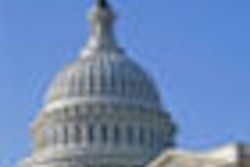Without a few small but significant changes, the health care reform legislation currently being crafted by U.S. Congress could actually disrupt dental coverage for millions of children who already have it now, according to Delta Dental Plans Association President Kim Volk.
Volk is urging members of Congress to consider key oral health provisions as the House and Senate reconcile their differing healthcare reform bills.
"Delta Dental is pleased that both the House and Senate healthcare reform bills seek to expand access to oral health care," said Volk in a company press release. "However, without changes, both of these bills will seriously, and inadvertently, disrupt the primary dental coverage enjoyed by millions of Americans today and undo decades of progress in improving the nation's oral health."
Congress should address key dental-related issues as it irons out the differences between House and Senate bills, he added.
"First, we ask Congress to allow for vigorous competition among different types of insurance companies, including stand-alone dental carriers and the dental-focused carriers," Volk said. "Unfortunately, the House bill would force families to buy children's dental insurance from medical insurers, without the option to purchase from more experienced and specialized dental plans. It would also force parents with family dental coverage today to purchase two dental plans -- one for their children and another for themselves. Ultimately, the House bill would disrupt coverage for an estimated 40 to 50 million children across the country."
Volk noted that the Senate bill allows for competition inside the new health insurance Exchange but fails to assure it for those who currently have dental coverage.
Delta Dental is also urging Congress to include language in the final legislation that improves transparency and preserves consumer options by requiring separate pricing of pediatric dental plans. "Separate pricing will give consumers the opportunity to compare costs and determine which dental plan best meets their needs and those of their families," Volk said.
He also expressed concern with the Senate's proposal to impose an excise tax on employer-provided health benefits that exceed a maximum threshold.
"Dental insurance is not getting the same attention in the healthcare reform debate, in part because dental benefits -- and their prevention-based model -- are examples of what works in health care. Any cap on employer-paid dental premiums would erect new barriers to access and seriously erode decades of progress in oral health," Volk said.
"Both chambers of Congress have sought to make prevention a focus in healthcare reform. That's exactly what 170 million Americans enjoy with their current dental plans."



















